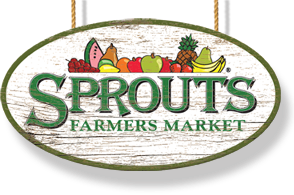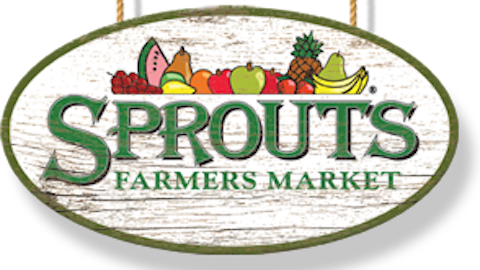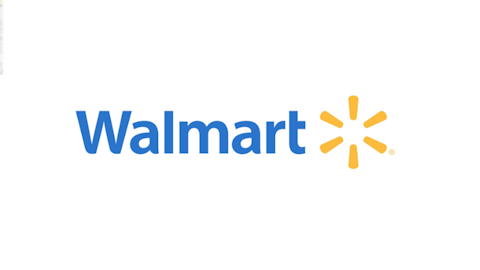Grocery stores that sell organic food remain popular with investors. Sprouts Farmers Market Inc (NASDAQ:SFM) more than doubled in price on its first trading day, but that means Whole Foods Market, Inc. (NASDAQ:WFM) now has another publicly traded peer that could attempt aggressive price competition to capture market share. Sprouts Farmers Market Inc (NASDAQ:SFM) also helps illustrate the current opportunities and threats for Whole Foods.

The health food market
Sprouts’ prospectus supports the argument that the health food market can maintain the rapid growth it has achieved in recent years. According to Sprouts, the Nutrition Business Journal reported that US shoppers bought $43 billion worth of organic and natural food in 2011, and projected that this market would maintain a 10% compound annual growth rate until 2020. Sprouts Farmers Market Inc (NASDAQ:SFM) also noted that total United States supermarket sales come out to around $600 billion a year.
A large and growing market offers good news for other specialized grocers. Whole Foods Market, Inc. (NASDAQ:WFM) has trailing sales of $12.9 billion. This figure would be 30% of total United States organic and natural sales in 2011, although importantly, Whole Foods also has stores in Britain and Canada. Whole Foods also boasts much higher sales than its competitors. The second largest health food chain, Sprouts Farmers Market Inc (NASDAQ:SFM), has $2 billion in trailing revenue. The Fresh Market Inc (NASDAQ:TFM) has trailing revenue of $1.37 billion, and Natural Grocers by Vitamin Cottage Inc (NYSE:NGVC) has trailing revenue of $379 million. All four grocers’ sales combined still come out to less than half of the United States market.
The competitive threat
Sprouts Farmers Market Inc (NASDAQ:SFM) offers a compelling sales proposition, offering “healthy living for less.” This grocer could undercut Whole Foods Market, Inc. (NASDAQ:WFM), which might also mean more price competition for The Fresh Market Inc (NASDAQ:TFM) and Natural Grocers by Vitamin Cottage Inc (NYSE:NGVC). Sean Deale, at In-Store Trends, explained that Sprouts offers produce at prices 25% to 30% below what Whole Foods charges. Whole Foods may need to justify its price premiums to shoppers to maintain its margins.
Sprouts currently has a regional presence in the Southwest, with many of its stores located in Southern California. This chain’s stores in Mountain West states could complicate Natural Grocers by Vitamin Cottage Inc (NYSE:NGVC)’ expansion plans, especially if Sprouts can sell produce for less than what Natural Grocers charges. Sprouts could also challenge The Fresh Market Inc (NASDAQ:TFM) in Northern California and Texas, although The Fresh Market has many stores in Eastern states as well, where Sprouts currently has no presence. Competitive pressure from Sprouts might convince Natural Grocers by Vitamin Cottage Inc (NYSE:NGVC) and The Fresh Market Inc (NASDAQ:TFM) to go after Whole Foods Market, Inc. (NASDAQ:WFM).
Expansion
Acquisitions have helped Whole Foods Market, Inc. (NASDAQ:WFM) achieve rapid growth in the past. In 2007, Whole Foods planned to buy Wild Oats, but the Federal Trade Commission challenged the merger over concerns that Whole Foods would gain a monopoly. After Whole Foods bought Wild Oats, the grocer sold off the Henry’s stores that eventually became part of Sprouts. John Mackey explained that some items in these farmer’s market format stores didn’t meet Whole Foods’ quality standards.
The Sprouts IPO could make future acquisitions easier for Whole Foods. After the IPO, Sprouts achieved a market cap of $5.4 billion. Although Sprouts still has a lower market cap than Whole Foods at $19.5 billion, the health food grocer can point to a major competitor in its sector that could help alleviate antitrust concerns. The reason that Mackey gave for selling Henry’s makes a Sprouts acquisition look unlikely, and The Fresh Market Inc (NASDAQ:TFM) and Natural Grocers by Vitamin Cottage Inc (NYSE:NGVC) would both be expensive buys, but Whole Foods might still identify a smaller acquisition candidate.
Conclusion
The Sprouts IPO could be good news for Whole Foods. Investors still hunger for health food stocks, and the secular growth trend could last for several more years. Whole Foods maintains a strong brand and a reputation that could help it fend off price competition. This health food store could still be an appealing investment.
The article What the Sprouts IPO Tells Investors About Whole Foods originally appeared on Fool.com and is written by Eric Novinson.
Eric Novinson owns shares of Whole Foods Market (NASDAQ:WFM). The Motley Fool recommends The Fresh Market and Whole Foods Market. The Motley Fool owns shares of Whole Foods Market.
Copyright © 1995 – 2013 The Motley Fool, LLC. All rights reserved. The Motley Fool has a disclosure policy.




